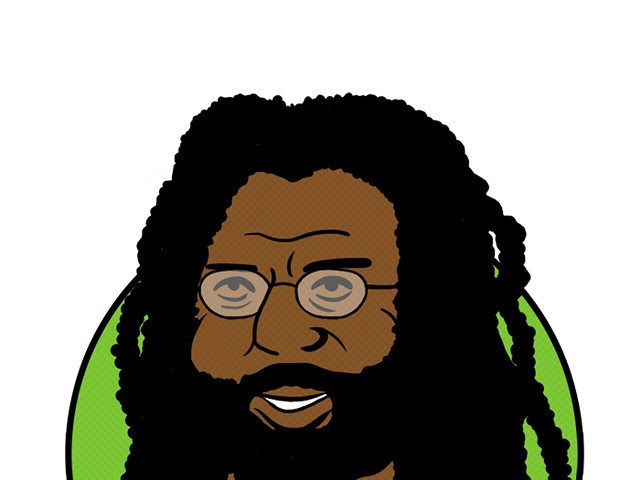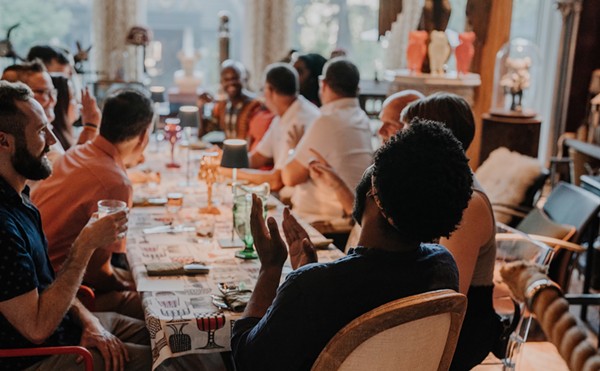I was at middle linebacker, and as the play unfolded I saw the fullback coming up the middle with the ball. As I made the tackle, the fullback's knee caught me on the forehead. Everything went black, then stars shot through the darkness. After standing on the sideline for a few minutes the dizziness went away and I went back in the game.
That's kind of the way it works in football. If you want to stay in the game long term, you shake off as much injury as you can in the short term. My experience took place in high school. By then I'd been playing for seven years. In this game you learn early to take the physical pounding. Good thing I never played at a higher level.
Super Bowl LI kicks off in a couple of weeks. Players for the best professional football teams are hitting extra hard trying to get to the ultimate game. They have cute names for these vicious assaults. I've always been fond of slobberknocker; that when you hit somebody so hard spit flies out of his mouth. But those kinds of hits take their toll.
The Detroit Lions, who lost to Seattle in this season's playoffs, has a host of players who missed games or were limited because of injury. Travis Swanson, Ameer Abdullah, Darius Slay, Larry Warford, DeAndre Levy, Ziggy Ansah — the list is several times longer — all had injuries ranging from concussion and broken bones to torn ligaments and dislocations. Some of them going all the way back to the previous season. Considering many of the injuries, quarterback Matthew Stafford's dislocated finger was only significant because it was on his throwing hand.
Chris Kluwe, a former NFL punter most known for his eight seasons with the Minnesota Vikings, knows all about the pain of being a football player. He had four knee surgeries during his career. Watching the playoffs, he knows those guys are hurting.
"I know for a fact that they're experiencing pain, because no one makes it through an NFL season without getting hurt," Kluwe told me via email. "The only question is a matter of severity."
Known for being outspoken on social issues, it's no surprise that Kluwe is talking about pain control for athletes and the possibility that cannabis could be part of it. For one thing he's already talked about it plenty in private with other players. How to deal with pain is one of the hidden subcultures of football as players search for some way to deal with the hurt.
"Players definitely talk with each other about what allows them to get through (the season)," Kluwe says. "For some guys it's Toradol, for some guys it's alcohol, for some guys it's Vicodin, and for some guys it's cannabis. I'm of the opinion that we should do some actual science, and see which substance offers the most reward for the least risk, depending on situation, and then adjust treatment protocols accordingly."
Kluwe is doing more than talking. He's a member of the Gridiron Cannabis Foundation. The GCF is a nonprofit focused on research and education about CTE (chronic traumatic encephalopathy), concussions, Alzheimer's disease, multiple sclerosis, neuropathy, dementia, chronic inflammation, leukemia, and brain and other cancers. The group particularly wants to be on the forefront of research on traumatic brain injury, and has lofty goals about creating state-of-the-art research and medical facilities.
Cannabis is high on the GCF's agenda. The members want to figure out if it can really be helpful for football players and others.
"If proper doses of cannabis can help players make it through the rigors of an NFL season without developing a crippling dependence on opioids (like what happened to players in the '60s through the '90s, and even today), then I think we owe it to the people risking their bodies to provide them that alternative," he says.
Members of the GCF are taking part in a study with Constance Therapeutics, a California maker of cannabis extracts, to try to determine if those extracts are effective in pain management for former football players.
That former is a key distinction. While plenty of active football players use cannabis, the only ones talking about it are retired. That's due to the fact that under the contract between the players and owners, in force until 2020, cannabis is a banned substance. Neither side can unilaterally change the agreement despite the fact that medical cannabis is legal in some form in most states. The players association is organizing a pain management committee that will consider cannabis, and several team owners have said they are open to discuss the issue. But without solid scientific evidence it will be tough to get enough agreement to buck federal law, which says there is no accepted medical use for cannabis.
Football players are ready to push the envelope on that. Every year a handful of players are suspended for testing positive for marijuana use. Those suspensions are not handed out for a first-time offense. In the search for relief, players are ready to take that chance.
And once retired, they seem to be jumping on the cannabis train in droves. Former quarterback Jake Plummer is outspoken about cannabis use to treat pain, and has teamed with other former players to raise money for research. That campaign, When the Bright Lights Fade, has teamed with researchers at Johns Hopkins University and the University of Pennsylvania to study cannabis use and its effects on football players.
Many football players already believe it helps. Plummer uses CBD oil and a topical gel to keep himself going. Kluwe believes that cannabis keeps him going too.
"There are many days where it is physically painful for me to walk/jog/run and try to maintain an active lifestyle," Kluwe says. "I do not wish to become addicted to prescription pain pills, and currently cannabis, in the proper doses and at the proper time, allows me to live my life in a manner close to normal. If it can help other people achieve the same results, then we would be doing our society a disservice to not make it an acceptable remedy."
He's certainly right on that point. Pain is one of the top reasons anyone goes to see a doctor. So it's no surprise that chronic pain is also the overwhelming reason most people use medical marijuana. Anything these football players figure out will also be useful for many of the rest of us.
The results of the Constance Therapeutics study won't be available until the spring. That will be after the Super Bowl. When players with small wounds will be getting healed up. and those with more severe health issues will be wondering how long they will be able to stay in a game that rewards its warriors with large sums of money but won't let them use the one medication that keeps them going.
In the meantime, enjoy your playoff football. While my preference leans to the NCAA basketball tournament, the Super Bowl is indeed the biggest individual sporting event in the United States. Just remember that after it's all over, even the mightiest of the gridiron warriors will be humbled by pain. And cannabis might be the only thing he can turn to that doesn't cause even more damage.






